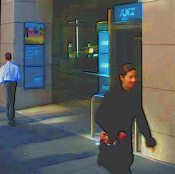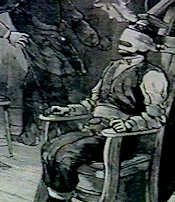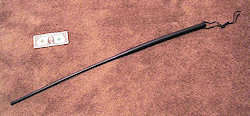 The Bureau of Industry and Security (“BIS”) posted yesterday the details of its settlement with Eastways Shipping, a small New-York based freight forwarder. Under the settlement agreement Eastways agreed to pay $70,000 to settle charges that it handled three export shipment of EAR99 scrap metal to Allied Trading Company, a company on BIS’s Entity List. The settlement suspends $10,000 of the penalty provided that the other $60,000 is paid when due and that Eastways commits no further export violations for a one-year period. The value of the shipments was $95,335.
The Bureau of Industry and Security (“BIS”) posted yesterday the details of its settlement with Eastways Shipping, a small New-York based freight forwarder. Under the settlement agreement Eastways agreed to pay $70,000 to settle charges that it handled three export shipment of EAR99 scrap metal to Allied Trading Company, a company on BIS’s Entity List. The settlement suspends $10,000 of the penalty provided that the other $60,000 is paid when due and that Eastways commits no further export violations for a one-year period. The value of the shipments was $95,335.
Eastways appears to be a very small company with estimated annual revenues of $930,000 and five employees. It’s quite possible that a company of that size was unaware of the need to check the Entity List or even knew how to do so. That doesn’t excuse the violation, particularly where checking the Entity List and other lists isn’t terribly burdensome, but it does suggest that a fine equal to more than seven percent of the company’s annual revenues and more than 70 percent of the value of the shipment is perhaps overly punitive in this situation.
As I’ve said before, BIS would do more to promote small business compliance by specific outreach efforts targeted at small businesses rather than periodic, and severe, spankings of small businesses that commit minor export violations such as this one. Under the listing for Allied Trading Company there is a presumption of license approval for exports of EAR99 items, so Eastway’s sin was not really exporting the scrap metal, but was for handling an export where the shipper failed to seek a required license that would have been routinely granted.

 Posted by
Posted by  Category:
Category: 

 ANZ Bank, Australia’s third largest bank, recently
ANZ Bank, Australia’s third largest bank, recently  Last week a federal district court in Ohio
Last week a federal district court in Ohio  Last week the Bureau of Industry and Security (“BIS”)
Last week the Bureau of Industry and Security (“BIS”) 


 Publicly-traded
Publicly-traded 

